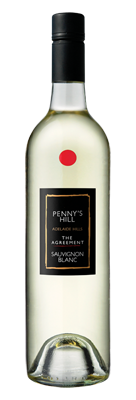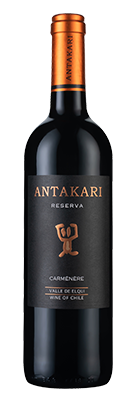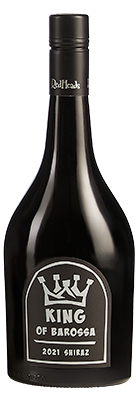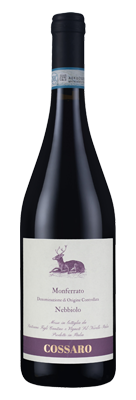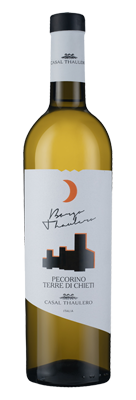Filter by
- This Gold medal winning Garnacha Blanca from Navarra is like sunshine in a glass!$22.00 RRPfrom $14.99 when you mix 12+
- “Splendidly fruited and inviting” (Wine Orbit) Adelaide Hills Sauvignon with several 90-94pt scores.$26.00 RRPfrom $24.99 when you mix 12+
- Peppery, silky plum and blackberry fruit red in this high-grown Carmenère from Chile's Elqui Valley.$28.00 RRPfrom $18.99 when you mix 12+
- New exclusive Riesling from one of Australia's oldest family owned wineries.$25.00 RRPfrom $14.99 when you mix 12+
- "Elegantly fragrant" and "mouthwatering' 91pt WA Grigio from remote Great Southern.$22.00 RRPfrom $18.99 when you mix 12+
- 92pt 'attractive' Chardonnay from a Hunter producer using select parcels out of Tumbarumba.$50.00 RRPfrom $39.99 when you mix 12+
- $35.00 RRPfrom $29.99 when you mix 12+
- 97pt Cabernet Shiraz distinguished Aussie classic blend from Wrattonbully.$50.00 RRPfrom $37.99 when you mix 12+
- "Juicy & exuberant" 93pt Sauvignon from McLaren Vale's Cape Barren$30.00 RRPfrom $21.99 when you mix 12+
- $30.00 RRPfrom $24.99 when you mix 12+
- Mataro pumps up the volume of classic Clare Shiraz, making: ”excellent drinking. 93pts” (Wine Orbit)$24.00 RRPfrom $17.99 when you mix 12+
- A limited parcel of gorgeous Shiraz fruit lies behind this rare RedHeads release.$36.00 RRPfrom $29.99 when you mix 12+
- 94pt Shiraz Shiraz Shiraz from three distinct Marananga (Barossa) vineyards. Wow, wow and wow!$25.00 RRPfrom $21.99 when you mix 12+
- Second vintage of this king-sized Barossa Shiraz – and it’s outdone its Gold-medal debut vintage!$45.00 RRPfrom $27.99 when you mix 12+
- FIVE-time Trophy winner, including 'Best Single Vineyard Red Wine' two years in a row!$50.00 RRPfrom $50.00 when you mix 12+
- Fine, fresh, elegant Nebbiolo from Piedmont. A taste of Barolo, but without the wait or price tag.$38.00 RRPfrom $29.99 when you mix 12+
- An exciting, one-off parcel of superb Argentine Malbec from a 'New World Top 5' winery.$42.00 RRPfrom $33.99 when you mix 12+
- Perfection is no race, as the talents behind this amazing 96pt Tempranillo Grenache would attest$30.00 RRPfrom $21.99 when you mix 12+
- Small batch Adelaide Hills Pinot Grigio made by the vastly experienced Ben Riggs.$25.00 RRPfrom $19.99 when you mix 12+
- Crisp, apple-fresh Gavi, Italy's much-loved classic, guided from vine to glass by Beatrice Vezza.$30.00 RRPfrom $23.99 when you mix 12+
- Deliciously balanced 92pt Clare red blend with alluring red and blue fruit aromas$25.00 RRPfrom $20.99 when you mix 12+
- $44.00 RRPfrom $34.99 when you mix 12+
- Exclusive, secret Réserve claret from a Premier Grand Cru Classé château in Pauillac. Unmissable.$60.00 RRPfrom $54.99 when you mix 12+
- Adelaide Hills Sauvignon from Tim Knappstein – varietally bang on, with scores of 90, 92 and 93pts,$24.00 RRPfrom $18.99 when you mix 12+
Wine FAQs
What is vegan wine?
As wine is made from fermented grape juice, you’d be forgiven for thinking that all wines are vegan by nature. So, are all wines vegan-friendly? Not necessarily – what makes a wine vegan is how it’s made. Some winemakers use animal-based products during the winemaking process, which means their wines may not be suitable for those following a plant-based diet.
Before wines are bottled, they undergo a process called clarification. This removes tiny, natural particles and impurities that are natural by-products of fermentation, which can give wine an unappealing, cloudy appearance. Most winemakers use fining agents, which bind with the particles, forming larger clumps that can be filtered away to leave a clear wine.
The problem lies with the fining agents – the most common of which are animal-based products such as gelatin and egg whites.
Winemakers can opt for alternative fining agents made from plant or mineral materials to do the same job. These wines can then be labelled vegan, making them a good choice for anyone wanting to avoid animal products.
Some winemakers avoid clarifying their wines or leave them to clarify naturally over time without fining agents, which makes them vegan-friendly by default.
What fining agents are used in vegan wine?
Traditional fining agents include:
- Gelatin – from the bones, skin or connective tissue of cows and pigs.
- Isinglass – the dried swim bladders of fish.
- Casein – a substance found in milk.
- Albumen – egg whites.
- Chitin – crustacean shell fibre
Although these materials are used in tiny quantities and are removed from the wine once their job is done, some trace amounts could remain in the finished wine. As they aren’t classed as additives, they aren’t required to be listed on the wine label, which could make it harder for vegans to make an informed choice.
Vegan wines are made specifically using synthetic or plant-based fining agents, or they are bottled without being clarified at all. Alternative fining agents include:
- Bentonite – an absorbent clay made from volcanic ash.
- Activated carbon –from coconut shells, bamboo or coal.
- Kaolinite – a type of clay
- PPVP (polyvinylpolypyrrolidone) – a synthetic polymer that’s made in a lab.
- Silica gel – made from silicon dioxide, found in sand and quartz.
- Plant casein – a vegan-friendly protein extracted from legumes like peas and soy.
Does vegan wine taste different?
Vegan wine tastes just like regular wine because it’s made from the same grapes and in nearly the same way. The fining agents used to clarify and stabilise the wine – whether animal-based or vegan-friendly – don’t affect its flavour, so you won’t miss out on taste by picking a vegan option.
There might be a smaller variety of wines to choose from. However, as veganism has become a more popular dietary choice, many wine brands now recognise the need to create vegan-friendly versions of their wines.
How can you tell if a wine is vegan?
In Australia, winemakers are required by law to state on their label the presence of certain allergens, including milk, egg and fish (such as isinglass). This can be helpful when trying to identify vegan wines.
However, to make it easier for vegans to shop, many wineries now clearly label their bottles as ‘vegan’ or ‘vegan-friendly’.
This section at Laithwaites is dedicated to vegan wines, so you can find all your new favourites in one place.
Are organic wines vegan?
Although the two terms might sound related, organic wines are not automatically vegan.
Organic wines are made with grapes grown without synthetic fertilisers or pesticides, but the winemaker may have used animal-based fining agents in the winemaking process.
Vegan wines could be made from grapes treated with synthetic chemicals but are not clarified and stabilised with animal-based fining agents.
Is vegan wine popular in Australia?
Yes, vegan Australian wine is becoming increasingly popular – both vegan white wine and vegan red wine.
With more people adopting vegan, vegetarian and plant-based diets for health reasons, vegan wine naturally fits into their lifestyle choices.
There is a growing awareness about the ethical implications of using animal products in food and beverage production, leading wine lovers to seek vegan alternatives. They are also motivated by environmental sustainability and choose vegan products to reduce their ecological footprint.
Australian winemakers are known worldwide for their creative and innovative approach, so it’s no surprise that alongside the international offerings, there are many excellent home-grown vegan wines available.



